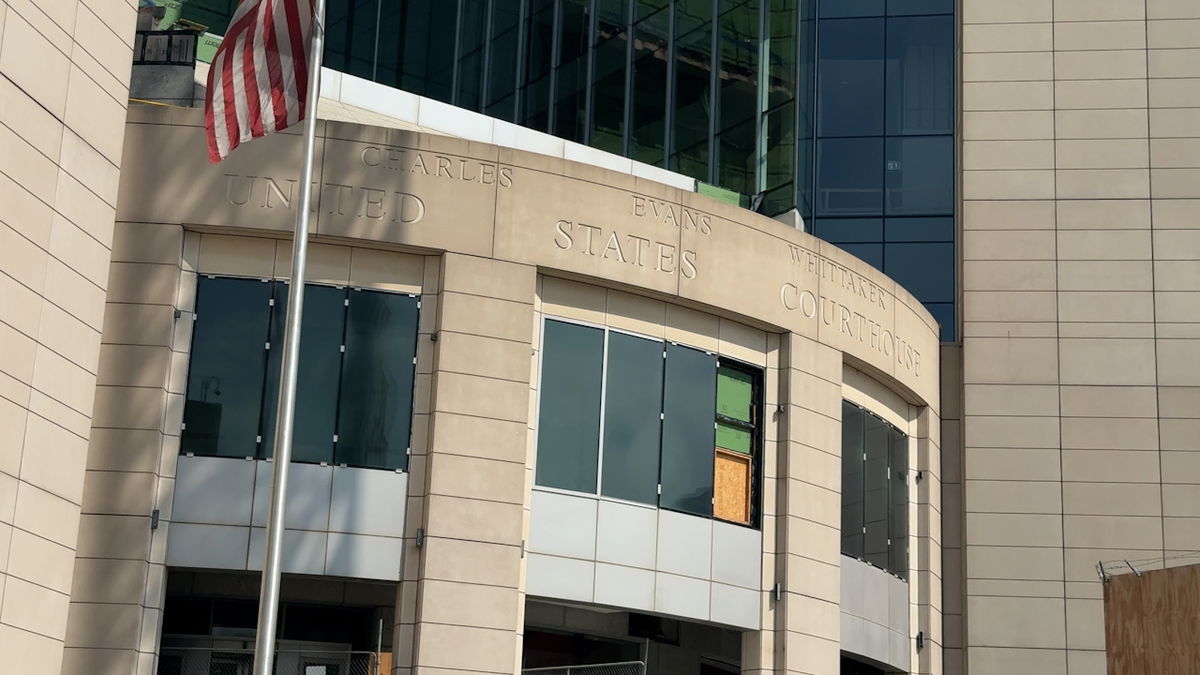Muslim rights group argues against MU student group’s parade denial during hearing in KC

Marie Moyer
EDITOR’S NOTE: The date of an altercation involving a club member has been corrected.
KANSAS CITY, Mo. (KMIZ)
The Council on American-Islamic Relations, representing Mizzou Students for Justice in Palestine, argued against University of Missouri President Mun Choi’s decision to bar the group from the 2025 homecoming parade in federal court in Kansas City on Tuesday.
Tuesday’s hearing was a part of CAIR’s larger suit against the university for its initial ban of the group during the 2024 homecoming parade, claiming the decision was made because of safety concerns on campus.
The university told ABC 17 News that the group was unable to participate for a second straight year on Friday, again citing safety concerns. The university also updated homecoming participant rules, making this year’s theme “Celebrating Black and Gold.”
According to the policy, the purposes of the parade are to:
Celebrate MU’s traditions and accomplishments
Cultivate alumni connections
Honor university-selected achievements of MU students, personnel and alumni
Rally support and enthusiasm for the Homecoming football game
The policy also reads:
“It is not an open forum for expression on topics identified by participants, but rather is limited to expression on topics identified by the University for the purposes noted above. The University provides ample other opportunities for participants to express themselves on topics of interest to them.”
During the hearing, former MSJP President Isleen Atallah, Mizzou Alumni Association Executive Director Todd McCubbin and Choi testified about the history of homecoming at the University and MSJP’s 2025 application and rejection.
The university claimed the decision to reject MSJP’s participation from the parade was a safety precaution after news of disruptions from other Students for Justice in Palestine groups in other campuses across the nation. The school also mentioned in August that a senior leader from MSJP was showing “concerning actions” on campus around homecoming last year and was trespassed on campus for verbal abuse and stalking following homecoming.
It was revealed in court that the senior leader mentioned was Atallah, who was trespassed from the school after an altercation in March 2025, after Atallah followed another student for several minutes while recording them after the student allegedly insulted and made racist comments at her. Choi voiced concern that with Atallah still having a presence in MSJP, the group could be a safety risk if put in another politically charged scenario.
CAIR argued that the actions of one student should not reflect on the whole organization. During her testimony, Atallah verified that MSJP hosted more than 80 events in 2024 with no violence or complaints from other students that resulted in disciplinary action for the group. CAIR notes that Atallah will be out of state during homecoming due to a prior commitment.
According to court documents, for 2025, MSJP planned to have a similar float that was initially approved by the 2024 Parade Committee and the Mizzou Alumni Association, with a traditional Palestinian dance performance and participants giving Palestinian candy to the crowd. They also planned to have two banners that say “Ceasefire Now” and “Stop the Genocide.”
“MSJP is open to amending its application in response to any reasonable requests from [the Office ofAlumni Engagement],” according to court documents.
The University argued that MSJP’s 2025 float does not follow the updated homecoming policy, adding that several groups that made the cut last year, like the College Republicans and Democrats, and people running for office were unable to participate this year. They add that any floats that have political messaging in signs or banners would be required to take them down or not participate.
CAIR argues that MSJP’s plans follow the 2025 homecoming guidelines, paying homage to the University of Missouri’s diversity and history of students in activism. CAIR also added that people in public office, including Columbia’s Mayor Barbara Buffaloe and Rep. Bob Onder (R-MO), were approved to be in the parade, arguing that their presence can be perceived as political.
CAIR also argued that the university’s new homecoming policy was inconsistent with several for-profit companies being approved as commercial groups in the parade. Under the new policy, all commercial companies must be nonprofit. McCubbin claimed during his testimony that the report was an error and the groups should have been categorized differently.
CAIR’s argument for MSJP’s participation also hinges on how the court defines the parade: Whether it’s government speech, which the school can tightly control, or a limited public forum, where officials can set some rules but can’t discriminate against certain viewpoints.
“I think that everything that the court needs to decide should be before it,” Ahmad Kaki staff attorney at CAIR National said. “We presented evidence from our side, we think that the evidence is pretty clear that SJP is being targeted because they want to advocate on behalf of Palestinians in Gaza.”
CAIR claims the parade is a limited public forum with the university opening the parade space to private businesses and sponsored speakers who may use the time to advertise. The University claims they have government speech, which means they have the right to control what’s presented.
Judge Stephen Bough did not make a decision on the matter Tuesday. However, he requested the university’s attorneys to find a stronger case to support their claim of government speech and to sort out the for-profit and non-profit commercial groups participating.
“If you are not following your policy, that answers it for you,” Bough said.
The hearing is set to pick up again on Wednesday at 8 a.m. Kaki does not expect a decision to be made on whether MSJP will be allowed to join the 2025 parade the same day.